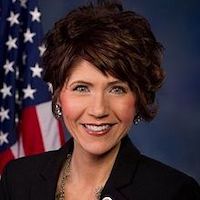
Washington, D.C., March 20 – While nationally 111,804 jobs were gained by people with disabilities, 904 South Dakotans with disabilities exited the workforce last year. Said Jennifer Laszlo Mizrahi, president of RespectAbility, “After strong job growth for people with disabilities in the state, this is a very troubling development. People with disabilities want the income and dignity of work, just like anyone else.”
Despite these losses, South Dakota still ranks 2nd in the nation for employment rates among people with disabilities. Out of 49,546 working-age (18-64) people with disabilities living in the Mount Rushmore State, 25,419 have jobs.
The newly published 2018 Annual Disability Statistics Compendium shows South Dakota has an employment rate of 51.3 percent for people with disabilities. Further analysis by the nonpartisan advocacy group RespectAbility shows that South Dakota’s disability employment rate has remained steady over the past two years. Further, despite being a small state, South Dakota consistently has outperformed bigger states such as California or Texas.
The job losses experienced by South Dakotans with disabilities reflects a slowing state economy impacted by changes in agriculture and shifting employment patterns. However, newly sworn in Gov. Kristi Noem has a significant opportunity to make her mark on the state and empower even more people with disabilities to join the workforce. Gov. Noem just released a proclamation celebrating March as Intellectual and Developmental Disability Awareness Month in order to raise awareness of how to promote more inclusive education, employment and community living for her state’s disability community.
“Our nation was founded on the principle that anyone who works hard should be able to get ahead in life,” said Hon. Steve Bartlett, current Chairman of Respectability, who co-authored the Americans with Disabilities Act when he was in Congress.
A National Issue
Beyond South Dakota, how is the workforce changing for people with disabilities? What is driving these changes? The answer is simple. According to Vincenzo Piscopo of the Coca-Cola Company: “People with disabilities bring a unique skill set that it is very valuable for companies.” He went on to add, “As it relates to employment and competitiveness in the workplace, we have to stop thinking of disability as a liability and start thinking of it as an asset.”
Brand-name companies such as JP Morgan Chase, Coca-Cola, Ernst & Young, IBM, Walgreen’s, Starbucks, CVS and Microsoft show people with disabilities are successful employees. These companies also know that these workers improve the bottom line. “People with disabilities bring unique characteristics and talents to the workplace,” said RespectAbility President Jennifer Laszlo Mizrahi. “Hiring people with disabilities is a win-win-win for employers, people with disabilities and consumers alike.”
As more companies hire employees with disabilities, conversations are shifting to focus on inclusion. “Disability inclusion is no longer about automatic doors, curb cuts, ramps, and legislation,” says Jim Sinocchi, Head of the Office of Disability Inclusion at JP Morgan Chase. “Today, the new era of disability inclusion is about “assimilation” – hiring professionals with disabilities into the robust culture of the firm.”
According to the Census Bureau, there are more than 56 million Americans living with a disability. Disabilities include visible conditions such as spinal cord injuries, visual impairments or hearing loss and invisible disabilities such as learning disabilities, mental health or Autism.
An Election Issue
Voter research, conducted by RespectAbility, shows how disability issues connect to all aspects of American life. “Fully three-quarters of likely voters either have a disability themselves or have a family member or a close friend with disabilities,” said former Representative and Dallas Mayor Steve Bartlett. “People with disabilities are politically active swing voters, and candidates should take note of the important issues they care about.”
As 2019 moves into 2020 and the political campaign season heats up, continuing job growth for people with disabilities will be a crucial indicator of the health of the American economy.

Be First to Comment